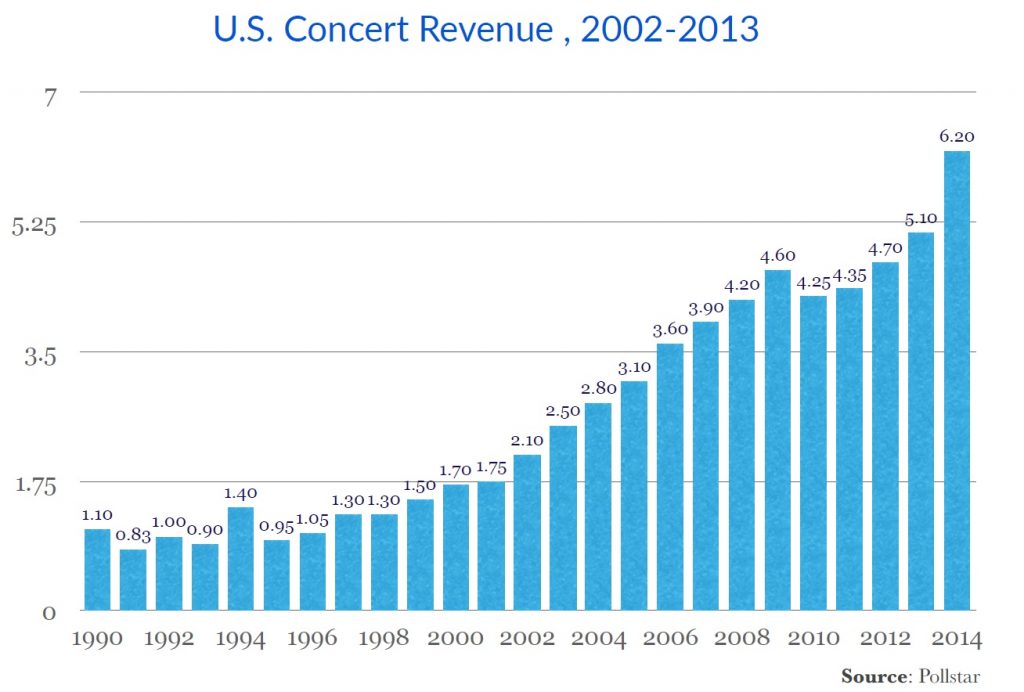In the last blog, we looked at the reasons why musical instrument and supplies industry must adopt e-commerce system. In this blog, we will take our discussion forward and look at the key features that can help businesses reduce risks and improve their chances of success. Businesses, when evaluating various e-commerce platforms, must use this list to compare and identify the right platform for their businesses.
Remember, the idea is not to merely create a digital catalog but to create an experience that was not possible earlier.
B2C – for businesses using e-commerce store for B2C customers
1) Responsive and Customizable E-commerce Store
Music is typically considered a right brain activity and for you to make an impact, you have to ensure that your e-commerce store is designed and crafted to deliver such an experience. Hence, it is important to invest time and money in an e-commerce store that will make it convenient for you to customize the UI to your liking, to help you deliver your brand experience. The store also has to be responsive; something that is no longer a good to have feature but is considered as a hygiene factor.
2) Good Content Management System
Consumers do a lot of research and seek expert advice before buying any musical instrument or equipment. To help you drive your consumers from awareness to consideration to decision you will need a lot of content (different types of content – text, images, video, etc.) and a good content management system to manage and deliver that content.
The information can help build trust with consumers by empowering them to take informed decisions. Further, businesses can collaborate with other players (like tutors, etc.) to develop content and leverage the CMS capability of the platform to nurture them and even teach music (self-help classes) to consumers.
i95Dev’s E-commerce Growth Engine (EGE), by default, comes with the Sales Literature module that can help businesses easily manage and share different types of content on their Magento e-commerce store.
3) Intuitive Navigation and Advanced Search Capabilities
Imagine this, you have the most amazing product portfolio, a responsive e-commerce store, and you have spent a lot of marketing dollars to attract consumers to your e-commerce store. Now, what good will that traffic be if the consumers are not able to find the right product (or have to invest a lot of time to find one) when they come to your e-commerce store – customers want to identify and find the right product in shortest possible time or, they are quick to abandon you for competition.
An intuitive navigation and enhanced search functionality is a must for any e-commerce business and music industry is no different. Hence, it is important to adopt an e-commerce store that gives you capability, either by default or through add-ons and extensions, to provide an intuitive navigation and advanced search capabilities to your customers.
You do not have to limit yourself to the general search tools that are available in the market. Thanks to the important role search play in driving e-commerce conversions, a number of advanced industry specific search tools are available for the picking. These tools can help your consumers search and find products by tone & clarity (crunch, distortion, gain, etc.), frequency (octaves, resonance, etc.), use (playing in a garage, etc.), and more.
4) Advanced Marketing & Promotion Capability
Kit & Bundled Products – It is quite common in the music industry to bundle multiple instruments and equipment and sell them as a Kit or Bundled Product. Your e-commerce store must be equipped with features to support this while managing the corresponding inventory effectively.
Upsell & Cross-Sell – Up-selling and cross-selling can be a very effective strategy in the musical instrument and supplies industry if used correctly. Your e-commerce store must make it easy and convenient for business owners to configure products for up-sell and cross-sell – like recommending a good amplifier for a consumer looking for a guitar.
Customer Segmentation and Personalization – The e-commerce store must also store information related your customers’ shopping behavior and preferences. This, while empowering you with tools to segment them, run targeted promotions, and personalize their shopping experience.
5) Tools to Drive Customer Loyalty
Consider this,
- A repeat customer has a 60% – 70% chance of converting
- Loyal top 10% of customers spend 3x more per order than the lower 90%, and top 1% of customers spend 5x more than the lower 90%.
Loyal customers not only spend more but also are brand’s best advocates. Hence, your e-commerce platform must give you features that enable you to manage and nurture loyalty effectively. For example, sending a simple email reminding your customer the due date for product service/ maintenance can go a long way in building customer loyalty (this not only fosters customer loyalty but also generates additional revenue opportunities).
This can be more effectively achieved by integrating your e-commerce store with your CRM system. The integration ensures the data consistency between the e-commerce and CRM systems; the CRM system then can be used to automate and drive customer loyalty and engagement campaigns.
B2B – for businesses using e-commerce store for B2B customers
6) Advanced Quotation
A quote is the first step in any B2B transaction and music industry is no different. If you are a manufacturer or distributor dealing with B2B customers, having an e-commerce store with the ability to raise and manage quotes online can be a big differentiator.
With the ability to create, modify and approve sales quotation online, your customer can quickly negotiate and convert quotes into orders. This not only reduces your quote to order cycle but also makes it easy for you to manage quotes raised by customers.
Also read – i95Dev’s E-commerce Growth Engine (EGE), by default, comes with the Advanced Quotation module that can help businesses efficiently drive their quotation process.
7) Sales Portal
For B2B businesses, e-commerce features go beyond their customers. Their sales representatives also play an important role and with the right tools in hand, they can have a huge impact on company’s bottom line. If the e-commerce store can double up as a sales portal then your sales representatives can directly consume information from the e-commerce store, take informed sale decisions, and close deals faster.
Also read – Find out how i95Dev’s Sales Person module can help businesses not only enables sales representatives to access all the crucial information that is necessary to close sales but also allows organizations to manage sales person accounts and their sales commissions.
8) Multi-warehouse Management
Musical instrument and related products require a lot of space and manufacturers/ distributors usually have multiple warehouses to maintain their inventory. If businesses desire to adopt e-commerce as their primary sales channel for their B2B customers, managing inventory and order fulfilment from multiple warehouses can be a challenge. Hence, the e-commerce store must be equipped with multi-warehouse management functionality to help businesses overcome this challenge.
Also read – Find out more about i95Dev’s Multi-warehouse management module for Magento.
Integration Requirements – for successful e-commerce adoption
This entire category of requirements is often the most overlooked bucket of requirements that businesses realize after they have implemented their e-commerce store.
9) Flexibility to sell across multiple sales channels
Your e-commerce store is not the only online avenue that can be leveraged to drive the sale of musical instruments. Online marketplaces like eBay and Amazon are witnessing an increasing sales trend for musical instruments on their platform. Businesses cannot afford to miss this opportunity because online marketplaces can give them the greater visibility they desire.
If businesses desire to sell on both, their e-commerce store and marketplaces, it can significantly increase their overheads because now they have to not only manage information in multiple systems but also take care of the communication between these systems manually. Usually, this increased overhead is what prevents businesses from selling on online marketplaces.
If your e-commerce store can seamlessly integrate with online marketplaces then you can reap the benefits with a marginal increase in operational overheads. Hence, you should look for an e-commerce solution that already has this requirement identified and already has a module or extension in place.
The same holds true if you are looking to sell across social media channels, physical stores (e-commerce POS integration), and on the go (e-commerce mobile pos solution). Consider this, according to Pollstar the U.S. concert revenue has been on a rise over the last 10+ years.
These concerts present an amazing opportunity to increase sales. Now, imagine having a Mobile POS device that integrates with your e-commerce system. You can leverage that device on the go, increasing sales, without worrying about syncing information back to the fulfilment system.
10) Managing inventory better
With sales happening over multiple channels and inventory managed in multiple warehouses, inventory management in the musical instrument industry can be a huge challenge. Primarily because the systems managing them are disconnected. This often leads to situations like taking orders for out of stock products (which can have a huge negative impact on the customer experience) and underselling of products (a loss in business opportunity).
With e-commerce and ERP integration, orders are automatically transferred from the e-commerce to ERP system. This can help businesses manage their inventory better while avoiding embarrassing situations.
11) Self-service customer portals
Customer education and managing customer expectations can be a huge challenge for businesses. Customers expect businesses to keep them informed of their order status, notify them about approaching maintenance schedule, resolve their issues and concerns immediately, and more.
Now, this information resides across multiple systems – order status in ERP, maintenance schedule in CRM, manuals and knowledge sharing documents on PIM, and more. By integrating e-commerce with these disconnected systems you can convert your e-commerce store from a sales channel to a self-service customer portal. Customers can log into your e-commerce store and easily find this information (for which they had to reach out to your customer support earlier). All this without worrying about managing information in multiple systems. Your customer support teams can now focus on activities that add more value to your customers.
12) Enhance the customer experience while reducing costs
In the beginning of the article, we said
“Remember, the idea is not to merely create a digital catalog but to create an experience that was not possible earlier”
Integrating ERP and e-commerce helps you build that experience by making it possible to offer options like buy online pick up in store, drop shipping, and more. By leveraging integration, businesses can even move to a model where they drive sales and control the customer experience without owning the inventory. For example, an online retailer can invest in e-commerce and marketing to drive leads while the fulfillment happens from the virtual warehouse comprising of the combined inventories of all its suppliers. When the order is placed, the retailer shares the order details with the supplier to drop ship the product to the customer location.
By doing this the retailers not only reduce the costs of managing the inventory but can also sell a larger catalogue of products.





